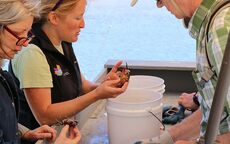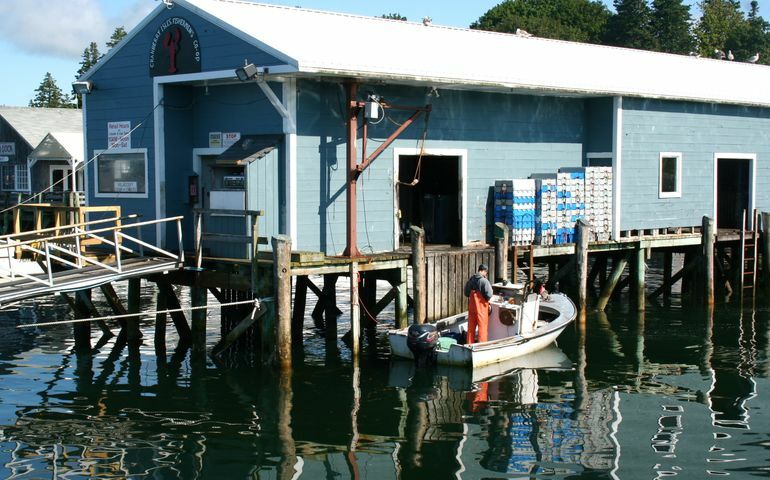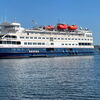
Processing Your Payment
Please do not leave this page until complete. This can take a few moments.
- News
-
Editions
-
- Lists
-
Viewpoints
-
Our Events
-
Event Info
- Women's Leadership Forum 2025
- On the Road with Mainebiz in Bethel
- Health Care Forum 2025
- On The Road with Mainebiz in Greenville
- On The Road with Mainebiz in Waterville
- Small Business Forum 2025
- Outstanding Women in Business Reception 2025
- On The Road with Mainebiz in Bath
- 60 Ideas in 60 Minutes Portland 2025
- 40 Under 40 Awards Reception 2025
- On The Road with Mainebiz in Lewiston / Auburn
- 60 Ideas in 60 Minutes Bangor 2025
Award Honorees
- 2025 Business Leaders of the Year
- 2024 Women to Watch Honorees
- 2024 Business Leaders of the Year
- 2023 NextUp: 40 Under 40 Honorees
- 2023 Women to Watch Honorees
- 2023 Business Leaders of the Year
- 2022 NextUp: 40 Under 40 Honorees
- 2022 Women to Watch Honorees
- 2022 Business Leaders of the Year
-
-
Calendar
-
Biz Marketplace
- News
-
Editions
View Digital Editions
Biweekly Issues
- April 21, 2025 Edition
- April 7, 2025
- March 24, 2025
- March 10, 2025
- Feb. 24, 2025
- Feb. 10, 2025
- + More
Special Editions
- Lists
- Viewpoints
-
Our Events
Event Info
- View all Events
- Women's Leadership Forum 2025
- On the Road with Mainebiz in Bethel
- Health Care Forum 2025
- On The Road with Mainebiz in Greenville
- On The Road with Mainebiz in Waterville
- + More
Award Honorees
- 2025 Business Leaders of the Year
- 2024 Women to Watch Honorees
- 2024 Business Leaders of the Year
- 2023 NextUp: 40 Under 40 Honorees
- 2023 Women to Watch Honorees
- 2023 Business Leaders of the Year
- + More
- 2022 NextUp: 40 Under 40 Honorees
- 2022 Women to Watch Honorees
- 2022 Business Leaders of the Year
- Nomination Forms
- Calendar
- Biz Marketplace
Luke’s Lobster mini-grants designed to strengthen coastal communities
 FILE PHOTO / LAURIE SCHREIBER
Cranberry Isles Fishermen’s Co-op was one of 10 recipients to receive a mini-grant from the Luke’s Lobster Keeper Fund.
FILE PHOTO / LAURIE SCHREIBER
Cranberry Isles Fishermen’s Co-op was one of 10 recipients to receive a mini-grant from the Luke’s Lobster Keeper Fund.
The Luke’s Lobster Keeper Fund has awarded $25,000 in mini-grants to 10 coastal projects from Portland to Beals Island.
The grant program is designed to strengthen economic opportunities for fishing communities and keep coastal waterways clean, according to a news release.
The projects include island and coastal clean ups; educational projects for elementary and middle school students and projects that support aquaculture and the remediation of ocean acidification.
“All the proposals we received were terrific,” Luke Holden, founder and CEO of Luke’s Lobster, said in the release. “In addition to providing financial support for these projects, we see an opportunity to help magnify the work these organizations are doing through our marketing and storytelling bandwidth. Through these projects, we hope to create strong and enduring partnerships.”
Over the course of 2020, the Luke’s Lobster Keeper Fund will deploy more than $25,000 through cash and in-kind contributions.
For the first time, the fund created a formal request for proposals process by which organizations could apply. This is the second year Luke’s has made contributions through its Keeper Fund. In 2019, funding went to the Island Institute to research the ability of kelp farming to reduce ocean acidification and to a number of coastal clean-ups, including the fourth annual Tenants Harbor Fisherman’s Co-op island clean-up, a fishermen-led endeavor.
“As a certified B Corp., Luke’s strives to always do better by the communities we live and work in,” Ben Conniff, Luke’s co-founder and chief marketing officer, said in the release. “Maine’s coastal communities are important to us, whether we’re looking at reducing ocean acidification or providing expanded educational opportunities to students, the goal is always for Luke’s to have a positive and lasting impact year over year.”
The fund is supported in part through a partnership with Allagash Brewing Co., where $1 for each Allagash White sold at Luke’s locations goes into the fund, up to $10,000 annually. Other funding sources include corporate partners such as Bank of America, as well as fundraisers hosted by Luke’s Lobster and a line item for charitable giving in Luke’s corporate budget.
The projects selected this year exemplify several missions that Luke’s Lobster is passionate about supporting through organizations that are vital to Maine’s future. The stories behind the organizations fall into three broad categories in 2020: water/ecosystem quality; investing in the future by teaching coastal kids; and mobilizing volunteers to keep trash out of the ocean.
Recipients are as follows:
• Downeast Institute, Beals Island: Funds for Maine’s easternmost research facility will be used to examine soft shell clam recruitment and settlement and the effect of ocean acidification on survival rates for soft shell clams, with an ultimate goal to rebuild the fishery, which has suffered a 75% loss of landings since 1980 and 3000 clammers.
• Manomet, Brunswick: Funds will support Manomet’s fisheries work to sustain New England’s fishing heritage through restoring fish populations and diversifying opportunities in fishing and aquaculture. The project includes a soft shell green crab fishery training workshop to teach fishermen to identify molting green crabs, and develop a culinary and value add market for this invasive species.

• Island Institute, Rockland: Funds will continue research regarding the ability of farmed kelp to reduce ocean acidification in collaboration. This project specifically looks at the volume of kelp (a lower value product) required to have beneficial effects on shellfish (a higher value product).

• St. George Municipal School, St. George: A K-8 school that serves the St. George peninsula, this project will involve students in science-based water quality testing with guidance from the Department of Marine Resources and with support from the Tenants Harbor Fisherman’s Co-op, with a long-term goal to open certain areas in Long Cove that are currently closed for aquaculture and wild clam harvest.
• S.E.A. Salts, Cranberry Isles: This nonprofit community organization focuses on sailing and boating skills, marine environmental education, and island exploration for young and old on the Cranberry Isles. Luke’s funds will be used to purchase devices to monitor clam flat health and explore the potential for aquaculture permits for a clam seeding study to investigate green crab competition among clams in protected versus unprotected sites.
• Boothbay Region Marine Foundation, Boothbay: The foundation supports and preserves working waterfront in the Boothbay region. Funds will support a ghost gear clean-up in Boothbay Region waters with commercial fishermen, in collaboration with the town of Boothbay and the Maine Coast Fishermen’s Association.
• Cranberry Isles Fishermen’s Co-op, Islesford: Funds will assist with a island/coastal clean-up.
• Tenants Harbor Fisherman’s Co-op, Tenants Harbor: Funds will assist with the fifth annual fishermen-led island clean-up.
• Telling Room, Portland: This nonprofit introduces stories and storytelling to students to develop a lifelong appreciation of the literary arts. The funded project will focus on students of Long Island, offering a five-day workshop to up ot 16 students in grades K-5.
• New Meadows River Shellfish Co-op, Harpswell: This is a newly formed aquaculture co-op with 20 farmers on the New Meadows Rivers. Funds will be used to purchase equipment to monitor dissolved oxygen levels on farms to help farmers develop action plans for protecting oysters from anoxic events.
Other organizations funded through in-kind support include Herring Gut in Port Clyde, to rebuild an aquaponics system for students; Maine Coast Fishermen’s Association in Brunswick, to develop collateral to educate coastal residents and visitors about fishing communities to foster understanding; and Maine Island Trail Association and Friends of Casco Bay, both in Portland.
About Luke’s Lobster
Luke’s Lobster is a seafood company and restaurant group dedicated to producing the best tasting seafood, transparently sourced from fishermen committed to sustainability. Luke’s Lobster’s Saco, Maine-based processing facility buys lobster and crab directly from fishermen and works collaboratively with them to return more value to the shore. In 2018, Luke’s Lobster became a certified B Corporation, memorializing its long-standing commitment to sustainability and its stakeholders and celebrated its 10th anniversary in October, 2019.
Founded by Cape Elizabeth native Luke Holden, who hails from a fishing family, Luke’s Lobster has 26 restaurants nationally including its flagship location in Portland and a seasonal shack in Tenants Harbor. Luke’s launched several consumer packaged good products in 2018 at Whole Foods Market and was named the Whole Foods Market Supplier of the year. Luke’s at-home lobster kits are available nationally at Union Market, Wild by Nature, and almost all Whole Foods Market locations; a percentage of sales from lobster kits goes back to the Tenants Harbor Fisherman's Co-op and Cranberry Isles Fishermen's Co-op. Luke’s plans to expand its consumer packaged good line in 2020, adding lobster Mac ‘n Cheese and lobster bisque. Growth for Luke’s Lobster means increased value at the shore for Maine’s fishermen, because Luke’s returns dividends to its partner-fishermen through a variety of incentives, such as sharing in savings of reduced live lobster shrinkage.
About Luke’s Lobster Keeper Fund
Founded in 2018, the Luke’s Lobster Keeper Fund is a charitable collaboration fund investing in coastal communities one project at a time. Each year the project initiatives vary, but the mission is always aimed at keeping coastal waterways healthy and strengthening economic opportunities for fishing communities.









0 Comments